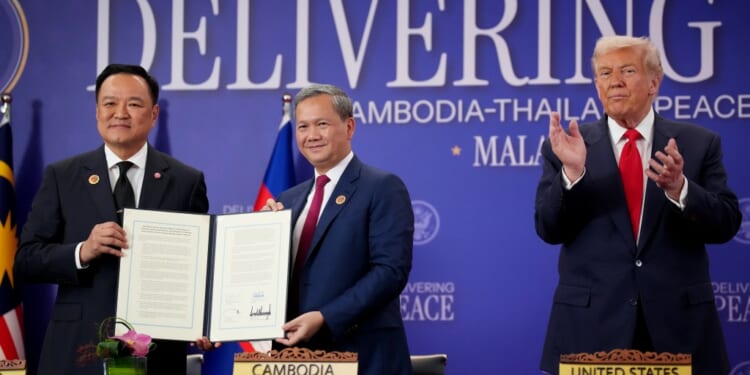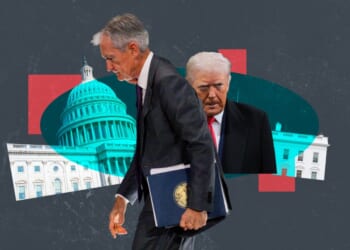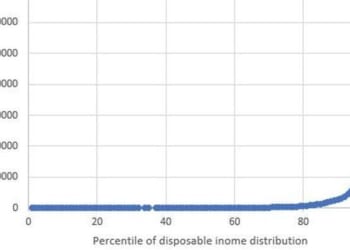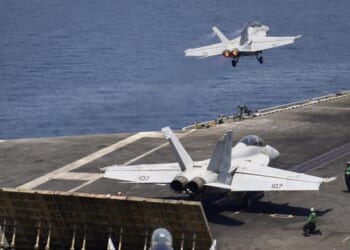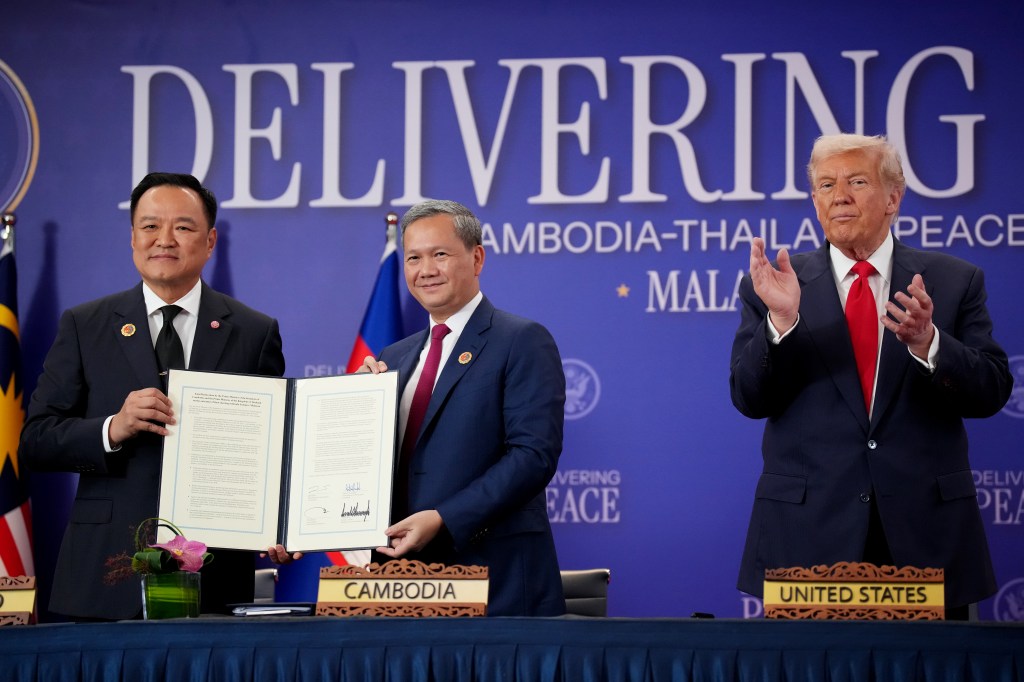
Two of the listed “wars” never reached the fighting stage, and Trump’s claim appears to be about preventing war from starting. Tensions spiked between Egypt and Ethiopia earlier this year over the construction of an Ethiopian dam on the Nile, which Cairo claimed would threaten its water supply. But the two countries never fought. And despite renewed strain between Kosovo and Serbia, the Balkan countries have not been at war—nor on the precipice—since Trump’s return to office.
By contrast, the war between Israel and its enemies has recently stopped but could be poised to return to open conflict. While a much-touted White House peace plan led to the return of Israeli hostages and the release of Palestinian prisoners, Israel is currently threatening to resume hostilities in the face of intransigence by Hamas related to other provisions of the deal, including the terrorist group’s disarmament. Both Israel and Iran are also reportedly preparing for another, more intense, war in the near future, as Iran rebuilds its ballistic missile stocks.
In the four remaining wars, the U.S. was publicly involved in ending hostilities, often arranging high-profile diplomatic summits to broker agreements between belligerents—but they haven’t been as solid as the White House claims.
In July, Cambodia and Thailand engaged in a series of deadly cross-border attacks over territorial disputes, which left dozens dead on both sides over the course of five days. On the third day of the conflict, Trump claimed that he called the leaders of each country, saying he would terminate ongoing trade negotiations with each country until “the fighting STOPS.”
Both sides then met in Malaysia for talks mediated by Malaysian Prime Minister Anwar Ibrahim, and on August 7, agreed on a framework for the cessation of hostilities. That same day, Cambodian Prime Minister Hun Manet nominated Trump for the Nobel Peace Prize, writing that his “visionary and innovative diplomacy” had “averted a potentially devastating conflict.”
Manet, his Thai counterpart, and Trump formalized the deal during his recent Asia trip, on the sidelines of the Association of Southeast Asian Nations summit in Kuala Lumpur, standing in front of a backdrop that read “DELIVERING PEACE.”
The delivery, however, is delayed. On Monday, Thailand paused implementation of the peace agreement following a border landmine explosion that wounded four Thai soldiers. Cambodia denied responsibility, saying the mine was likely decades old, but for now the border dispute remains unresolved.
A month before fighting broke out on the Cambodia-Thailand border, leaders from the DRC and Rwanda were in the White House, where they signed a deal later dubbed the “Washington Accord.” It was intended to halt violence and serve as a regional economic agreement, providing U.S. companies with access to critical minerals. It would build a “future where cross-border cooperation enhances peace and prosperity for both countries.”
But the statement has so far done little, and violence in the region has continued almost unabated. Rwanda has backed insurgencies in eastern Congo and, according to U.N. experts, sent thousands of its own troops across the border—moves Rwandan leadership claims are needed to confront Hutu militias based in Congo whose leaders took part in the 1994 Rwandan genocide.
David Simon, director of Yale’s genocide studies program, told TMD that the accord also failed to address the involvement of other nations in the conflict, like Burundi and Uganda, or the more than 100 minor rebel factions engaged in “hyper-local security issues,” such as the control of a road or mine. The largest rebel group, the March 23 Movement (M23), which Rwanda extensively backs, was also absent from the negotiations. “None of that is really addressed by the big framework that the Rwandan ambassador and Congolese foreign minister came to Washington to sign,” Simon explained.
For an actual resolution to the violence in the eastern DRC, the Congolese state would have to become much stronger, Simon argued—but state-building and foreign aid programs have not been a priority for the Trump administration.
Another recent deal, between Armenia and Azerbaijan, was also centered on an economic agreement. In this case, it’s the “Trump Route for International Peace and Prosperity,” a transport corridor connecting Azerbaijan to its Nakhchivan exclave via Armenia, with the U.S. enjoying exclusive development rights. Beginning with a visit to the South Caucasus by White House diplomatic envoy Steve Witkoff this spring, and culminating in a White House signing ceremony in which Trump executed a three-way handshake, analysts viewed the deal as a potential blow to Iranian and Russian influence in the region. But, as with the Congo and with Thailand, it was more of a diplomatic starting point than a definitive resolution.
The issue driving the more than 30-year conflict between Armenia and Azerbaijan—the contested region of Nagorno-Karabakh, which Azerbaijan ethnically cleansed Armenians from in 2023—was absent from discussions. That’s not necessarily a fatal blow to peace, said Laura Linderman, the director of programs for the Central Asia Caucasus Institute at the American Foreign Policy Council, but it’s certainly a sore spot. “Armenians are not happy, but they lost and they’re moving forward,” she told TMD.
And the two sides have yet to finalize the deal. While they pledged to “continue further actions” toward a final peace agreement at the White House, Azerbaijan is refusing to sign a binding deal until Armenia amends its constitution to take out language about territorial claims in Azerbaijan, a process that could take years. Linderman, however, argued that with sustained U.S. attention to the region, that goal is attainable. “With a bit of diplomacy and paying attention to both sides,” she said, “this is one where we actually can win quite easily.” But she noted that the risk of Azerbaijan attempting to extend its recent conquest remains real: Ominously, Azeri President Ilham Aliyev has referred to parts of southern Armenia as “Western Azerbaijan.”
The last conflict that Trump claims to have ended outclasses all the others in its destructive potential: the clashes between Pakistan and India, two nuclear-armed states, earlier this year. Sparked by a terrorist attack in India by militants that New Delhi claimed had ties to Pakistani intelligence services, the conflict saw both sides exchange attacks for four days, killing dozens.
The role the Trump administration played in halting the fighting is a matter of debate. “Like always, the U.S. did go back and forth between India and Pakistan,” said Harsh V. Pant, vice president at the Observer Research Foundation in New Delhi, “but I don’t think there’s any serious evidence that it played an important role in de-escalation.” However, Lisa Curtis—a foreign policy and national security expert at the Center for a New American Security who previously worked for the National Security Council, CIA, and State Department—told TMD that Secretary of State Marco Rubio “appears to have played a critical role” in making calls to both sides during the conflict. The question, then, is one of leverage. Trump claimed last week that he had threatened to cut off trade with both countries after hearing of the conflict, a claim which Indian officials vociferously deny.
But Pakistan, which is far weaker militarily than India, has been keen to emphasize Washington’s role. Pakistan formally nominated Trump for the Nobel Peace Prize earlier this year for his “decisive diplomatic intervention” in ending the series of clashes between the two countries.
India, however, says that foreign pressure was not a factor in its decision to halt the escalation. “No leader in the world asked India to stop military action,” said Prime Minister Narendra Modi earlier this year. Modi noted that Vice President J.D. Vance attempted to call him for an hour as India launched attacks on May 9, but when he finally responded, Vance merely informed him of Pakistani counterattack plans. Two days earlier, Vance told reporters that a war between India and Pakistan would be “fundamentally, none of our business.”
On Tuesday, the Pakistani government blamed “Indian proxy terrorist groups” for a bombing in Islamabad that killed 12 and injured 27. In turn, a Monday car explosion in New Delhi that killed eight is also under investigation as a possible terrorist attack. Modi has vowed that the “conspirators behind this will not be spared.”
Trump, however, is motivated to re-enter the diplomatic circuit by his dream of winning the elusive Nobel Prize. Though he missed out on the 2025 award, his hopes for next year might rely on the goodwill of the leaders he’s cajoled, threatened, and flattered in his various quests for peace deals.
But, as Simon told TMD of the African peace treaty, the president can “point in the direction of the water, but that doesn’t mean the horses are going to drink.”

